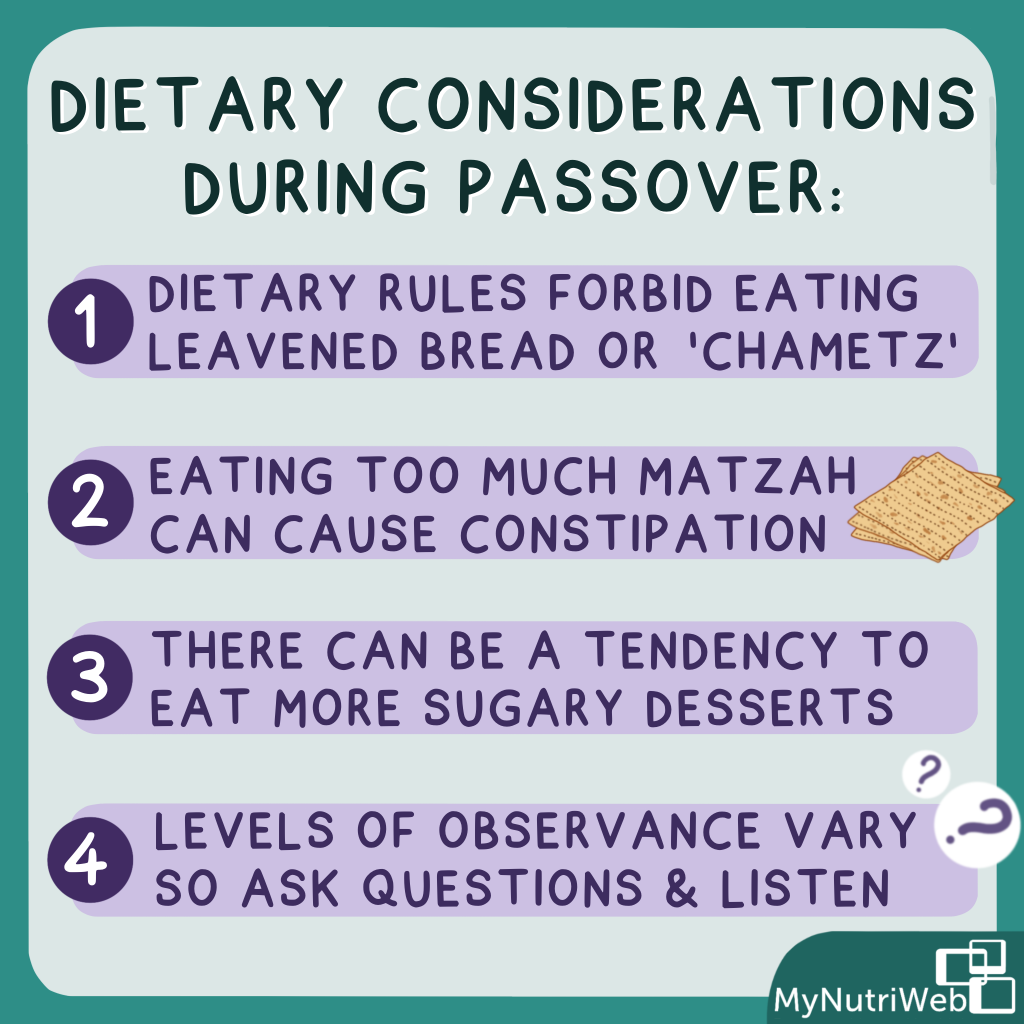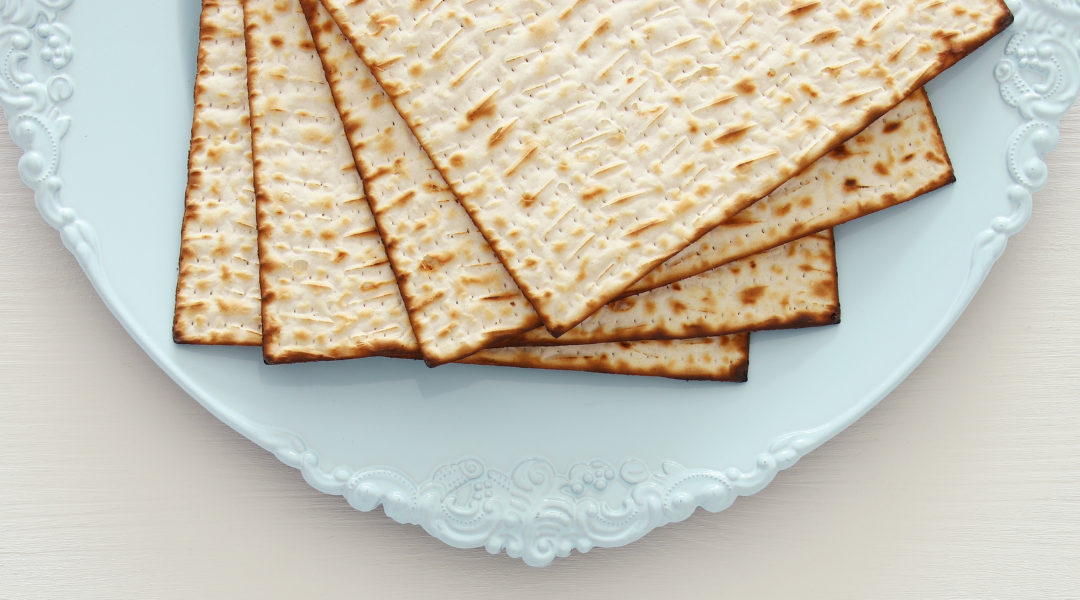As is the case for the rest of the population, the dietary habits of minority ethnic groups are affected by a wide variety of factors. Acquiring a better understanding of these can help health professionals to recognise the needs of these groups and help them to make healthier food choices. Here we explore the Jewish festival of Passover (or ‘Pesach’), which starts on the evening on Wednesday 5th April and is observed for eight days for many outside Israel (seven in Israel).
Passover celebrates the biblical story of Exodus, when the Israelites were freed from slavery in ancient Egypt. While many Jewish festivals feature food in some way, Passover is notable because of specific dietary restrictions, which can have nutritional impact.

These are some of main things you may need to be aware of if advising Jewish clients or patients:
1. Dietary rules
Passover dietary rules forbid eating leavened bread (bread that rises), or ‘chametz‘ – to commemorate the fact that when the Israelites left Egypt in haste, they didn’t have time for their bread to rise.
Chametz includes all food and drink containing grains that can ferment and become leavened: wheat, barley, spelt, oats and rye.
Ashkenazi Jews (those of Eastern European descent) will also not eat rice, corn or legumes (eg soya, lentils, chickpeas, beans etc).
2. Eating too much matzah
The standard substitute for bread – and something that you’re required to eat on Passover is matzah, or unleavened bread. Normally made of wheat flour and water, a standard slice can range from 75–160 calories, depending on size. As it isn’t hugely filling, there’s a tendency to eat more of it.
Often those whose daily diet includes cereal for breakfast and a sandwich for lunch will swap for matzah at both meals.
Not only is there an increase in calorie intake, but too much matzah can cause constipation.
What to advise: Suggest clients look for wholewheat matzah, which is higher in fibre and can make you feel fuller for longer. Counteract potential constipation by drinking plenty of water and eating fresh fibrous fruit and vegetables… at least the 5 a day. Talk about good alternatives for breakfast like yoghurt with fresh fruit and nuts, or eggs.
3. Sugary desserts and snacks
On Passover there can be a tendency to overcompensate for the things you can’t eat. This can translate into having more cake and biscuits during the week than you might otherwise! Especially if you’re celebrating (in COVID-safe way) with family and friends.
What to advise: Fresh fruit, veg and nuts such as almonds, walnuts and cashews are permitted on Passover and a good alternative. As normal flour is forbidden, desserts made with alternative flours, such as almond flour, can sometimes be healthier than standard ones.
4. Individual observance
Level of observance will vary. Some may simply swap bread for matzah to mark the festival, others will only eat foods that have been strictly supervised – and there will be varying degrees of observance in between. Make sure you understand how your patient changes their diet for the festival, to ensure any advice you give is appropriate to them – from both a religious/cultural and of course nutritional point of view.
We’ll be delving into more ethnic and religious ways of eating through the year, providing you with our learnings and top tips when advising on the needs of different groups. If you’d like to share your own expertise or experiences on our blog, please get in contact: hello@mynutriweb.com
UPDATED: 14 April 2022







Really interesting information about Matzah, thank you for posting!
Hope you don’t mind me asking questions.
Is alcohol permitted?
Do milk foods have to be prepared separate to meat?
I have a Jewish Cook book and there are a lot of egg recipes. Maybe I have this wrong?
Hard on Ashkenazi Jewish people who are vegetarian.
Thank you for your article, it is very informative.
Hi Ann, Yes, alcohol is permitted, in fact it is part of the celebrations for the first couple of nights where a specific evening meal and prayers are said (in fact 4 very small cups should be drunk throughout the service).
Depending on the level of observance, milk and meat should be prepared seperately and not be eaten together. Some people may not observe this at all whereas others may not eat them together and the more observant will have separate cooking and eating utensils.
There are a lot of egg recipes at Passover, this is partly due to the fact that you can’t use yeast, flour or anything that rises and eggs can give consistency and depth to food. Also at the passover meal, egg and salt water is eaten to represent a new life (the egg) and the tears that were shed when being kept as slaves in Egypt (salt water).
I agree, it is hard for ashkenazi jews who are vegetarian but all vegetables and potatoes can still be eaten as well as the maztahs so it is doable and of course even more eggs for protein!
Hope this helps and is of interest 🙂